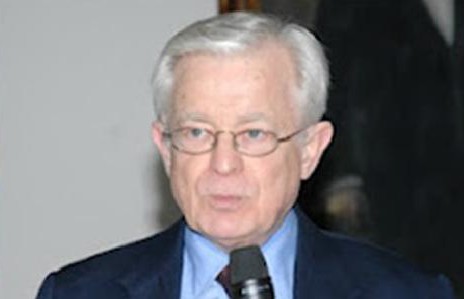
Private Schooling for the Public Good
Article argues that private sector options in the education sector have been underutilized in Latin America and the Caribbean.
This post is also available in: Spanish
PREAL’s co-director, Jeffrey Puryear, recently spoke at an event at the World Bank in Washington DC, entitled “Access to Quality Education in Fragile States – The Case of Haiti”.
The event focused on Haiti’s potential for growth and the need for human capital development. Puryear commented on presentations by Robert Prouty, Head of Global Partnership for Education; M. Reginald Paul, Minister of Education of Haiti; and Patrick Ramanantoanina, Senior Operations Officer of the Development Department in the Latin American and Caribbean region (LCSHD) at the World Bank. Emiliana Vegas, Lead Economist of the Human Development Network at the World Bank, chaired the meeting.
Paul first presented an overview of the demand-side approach of education, financed in Haiti by the World Bank and other partners. Ramanantoanin provided context for Haiti’s recent challenges, describing the increase in food prices in 2008, the 2010 earthquake and the subsequent cholera outbreak. He emphasized that reconstruction of the education system is a high priority, and acknowledged the World Bank’s role in supporting access to quality education in the country. Finally, Prouty discussed the Global Partnership for Education, and outlined a transition plan to respond to short-term education needs, reinforce the education system, address the demand side of education in Haiti, and develop a sectorial education plan.
Puryear pointed out the relevance, for Haiti’s largely private school system, of lessons in the World Bank’s 2011 book, Making Schools Work, including the importance of providing information to parents and administrators, stressing school-based management, and establishing incentives for good teacher performance. He argued that progress will be slow and that leaders should concentrate on what is clearly possible rather than trying to do everything. He noted the importance of information, and urged establishing basic learning standards and regular student assessments, and disseminating the results widely. He also suggested developing, and making mandatory, a simple test of teacher subject knowledge. He urged leaders to pay attention to parents, providing them with information and power. He encouraged the government to view the majority private character of the system as an opportunity to be exploited rather than a problem to be solved.
To see Prouty’s, Ramanantoanina’s, and M. Reginald Paul’s presentations (in French), please visit the World Bank’s summary of the event here. Video of the event can be found here.
Over the past several years, PREAL has worked to promote understanding, foster debate and bring new thinking to bear on Haitian education policy discussions. In 2007, PREAL, the Inter- American Dialogue and several other organizations co-hosted a high-level conference on engaging the private sector in improving Haitian education. In 2008, PREAL produced its first report on education in Haiti, “Education in Haiti: The Way Forward”. At the time of the 2010 earthquake the report was the only comprehensive analysis on Haitian education available. As Haiti continues to rebuild, PREAL will maintain its engagement in Haitian education policy to help ensure that each Haitian child has access to a quality education.
Article argues that private sector options in the education sector have been underutilized in Latin America and the Caribbean.
Conference to discuss the topics of training, innovation, corporate social responsibility, and sustainable development.
Education policy — what Romney and Obama agree and disagree on.

